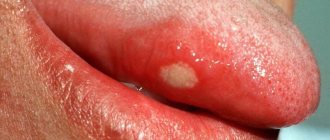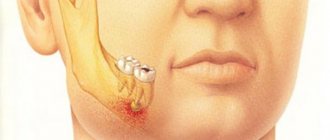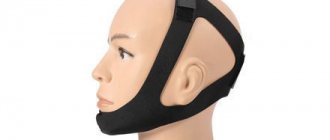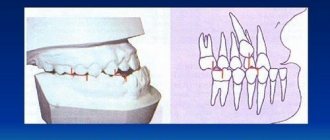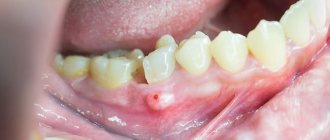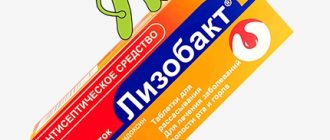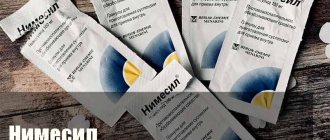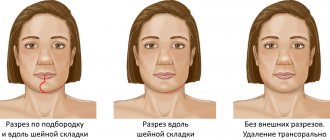As a result of the development of infectious and inflammatory diseases of the throat and oral cavity, an unpleasant and even cutting pain in the throat often appears. An unpleasant symptom negatively affects general well-being and interferes with normal eating, drinking and talking. The pain most often continues for several days. To alleviate the condition, many doctors advise taking Imudon.
Imudon is a medicine that is of bacterial origin. Has an immunostimulating effect. The drug helps to overcome the emerging disease. Before taking it, you should read the indications, instructions for use and make sure there are no contraindications.
Features of Imudon
The medicine has been sold in pharmacies for more than 2 decades. The drug is one of the local immunostimulants. Once in the oral cavity, it strengthens the immune system. The active components included in the composition are not capable of leading to the appearance of any disease or causing complications of an existing disease. The action of the active components leads to an increase in the number of phagocytes (cells of the immune system). These cells absorb and destroy foreign elements. The action of the active components is supported by the auxiliary elements present in the composition.
Imudon
The domestic immunostimulant imudon is a polyvalent complex of bacterial antigens corresponding to pathogens that most often occur in the oral cavity and pharynx and cause the development of inflammation. This drug is available in lozenges and is used topically to treat dental and otorhinolaryngological diseases. The substance for the production of imudon - a semi-finished solution - is produced by a French pharmaceutical company, while the drug itself is produced at Russian facilities.
Inflammatory processes in the oral cavity and pharynx can be caused by various factors that act both locally and generally. In the latter case, examples include diseases of the digestive tract, cardiovascular diseases, and pathologies of the hematopoietic organs, which can cause acute and chronic inflammation localized in the oral cavity and pharynx. Or the same smoking, which, along with environmental pollution, often underlies the development of chronic pharyngitis. There are various methods of combating inflammation localized in the oropharynx: inhalation application of antibacterial and alkaline solutions, lubricating the pharynx with special swabs soaked in the drug, novocaine blockades, the use of local and general analgesics and anti-inflammatory drugs. However, the result of these manipulations does not always satisfy the doctor and the patient. In recent years, a new “trend” in the treatment of inflammatory diseases of the oropharynx has been gaining momentum: the use of vaccines, which are lysates (“fragments” of cells) of microorganisms that cause infections of the upper respiratory tract.
Such a drug is imudon: it contains lysates of Lactobacillus acidophilus, lactis, helveticus, fermentatum, Klebsiella pneumoniae, Staphylococcus aureus, Carinobacterium pseudodiphteritlcum, Candida albicans, Fusiformis fusiformis, Streptococcus spp. The mechanism of action of imudon is based on the immunological effect on the mucous membrane of the oropharynx. As a result of local exposure to the lysate mixture in this area, the activity of phagocytes increases, the formation and activity of secretory IgA is stimulated, the concentration of immunocompetent cells that regulate the work of antibodies increases, and the amount of the antibacterial enzyme lysozyme in saliva increases. Thus, the use of imudon makes it possible to influence the cause-and-effect factors underlying the development of acute and chronic diseases of the oropharynx of inflammatory origin. When taking the drug, there is a reduction in the duration of the inflammatory process, relief of symptoms of the disease, a decrease in recovery time and the need for antibiotics and other antibacterial drugs. When using imudon, practically no clinically significant adverse reactions are observed (including with several pharmacotherapeutic courses). During treatment with the drug, there is a weakening of the symptoms of intoxication and normalization of well-being. Imudon improves the prognosis of both the underlying disease and etiopathogenetically associated pathologies. The drug is used for both therapeutic and prophylactic purposes. In the latter case, courses of taking Imudon should be carried out 3-4 times a year.
Adverse reactions and overdose
Negative effects may occur as a result of taking the drug:
- from the gastrointestinal tract: nausea, vomiting, pain in the stomach;
- from the respiratory system: cough, exacerbation of asthma;
- allergies: skin rash, urticaria;
- from the circulation: thrombocytopenia.
Other reactions include high body temperature.
No cases of overdose have been recorded to date.
Perhaps we are ahead of the rest and suffer least from ARVI/flu, but this is not certain. Exactly what was ironic above: in fact, you have a cold, because it is normal for a person to catch a cold a couple of times a year: we do not know how to effectively fight respiratory viruses and prevent the diseases they cause. We just don’t know how, we need to understand and forgive.
You may disagree with this, but by taking these drugs, you will get sick as much as people who do not take them, only you will not have any money. There is no need to try to strengthen the immune system with anything, simply because it cannot be strengthened with anything.
special instructions
Children under 6 years of age should take the tablets only under parental supervision.
If the patient needs to rinse the mouth, this can be done at least an hour after taking the tablet, otherwise its therapeutic effect will be reduced.
Taking the medicine does not in any way affect the ability to drive vehicles and other mechanisms that require special concentration.
If a person has bronchial asthma, then using the drug can aggravate the condition and lead to another attack, so in this case, taking Imudon is contraindicated.
Immunocorrective therapy for infectious lesions of the oral cavity
Results of clinical use of imudon
In recent years, one of the promising areas in increasing the effectiveness of therapy and preventing many diseases is the use of immunocorrective agents and methods. Currently, among the main groups of immunocorrective drugs, immunomodulators of microbial origin are of interest, among which there are three main groups - purified bacterial lysates, immunostimulating membrane fractions and bacterial ribosomes in combination with membrane fractions. New generation immunomodulators that can activate the formation of antibodies and stimulate defenses in the oral mucosa deserve special attention. Among them, Imudon should be mentioned first of all.
Imudon (produced by an international pharmaceutical company) belongs to the group of purified bacterial lysates. The drug is made from a mixture of lysates of strains of the most common bacterial and fungal pathogens of pathological processes in the oral cavity. Among them are Lactobacillus acidophilus, Streptococcus aureus, Klebsiella pneumoniae, Corinebacterium pseudodiphtericum, Candida albicans and others.
Imudon is intended for specific antimicrobial and anti-inflammatory immunotherapy of oral diseases. The drug is a polyvalent complex of antigens that can cause the formation of antibodies. The therapeutic effect of imudon is explained by its influence on the immune system, which is expressed in an increase in phagocytic activity due to a qualitative improvement in phagocytosis, an increase in the content of lysozyme in saliva, stimulation and an increase in the number of immunocompetent cells responsible for the production of antibodies, and an increase in the content of local antibodies (JgA ).
The antimicrobial and anti-inflammatory activity of the drug determines its use both for the treatment of corresponding diseases of the oral cavity and for the prevention of relapses.
Imudon is available in white tablets for resorption in the oral cavity.
Imudon was prescribed to 88 patients with various diseases of the oral cavity (see table). Among the patients there were 45 men and 43 women aged from 18 to 72 years.
All patients received etiotropic and pathogenetic general therapy in accordance with the existing disease. The main clinical indications for the use of imudon were chronic, relapsing course, as well as the presence of an inflammatory process in the oral cavity.
Imudon was prescribed eight tablets per day with an average treatment duration of 10 days. For chronic conditions - six tablets per day for 20 days or more. It was recommended to keep the tablet in the mouth until it is completely dissolved.
In patients with chronic recurrent processes, imudon was prescribed two to three courses of treatment per year.
Clinical effectiveness of the drug Imudon - 95%
| Clinical recovery | 25 people (28%) |
| Significant improvement | 44 people (50%) |
| Improvement | 15 people (17%) |
| No effect | 5 people (5%) |
The effectiveness of Imudon is generally 95% (see figure). No deterioration from the therapy was noted. Treatment was well tolerated in all patients; no side effects were observed.
The clinical effect of therapy with imudon manifested itself quite quickly - on the third or fourth day of taking the medication - and was expressed in a decrease in acute inflammatory phenomena and pain in areas of lesions of the oral mucosa.
The effectiveness of imudon largely depended on the clinical form of the disease. The most impressive results were obtained in patients with various stomatitis; the use of the drug led to rapid epithelization of aphthae and cure. At the same time, chronic tonsillitis and pharyngolaryngitis required repeated courses of Imudon (two or three per year) to obtain an anti-relapse effect. A significant improvement and reduction in relapses was noted when imudon was prescribed to patients with recurrent oropharyngeal candidiasis and gingivitis of various etiologies.
Thus, this drug can be recommended for the treatment of acute and chronic diseases of the oral mucosa. The method is characterized by good efficiency, tolerability, short duration of use and is especially convenient in outpatient practice. Long-term results of treatment are characterized by a decrease in the number of relapses, as well as an extension of remission periods.
Reviews about the drug Imudon
People who have already tried the effect of the medicine on themselves for medicinal or therapeutic purposes assure that for many diseases that are present in the list of indications for use, the tablets are highly effective. Most reviews are positive. Most often it is taken for stomatitis and tonsillitis.
There are some doctors who are of the opinion that the effect of the drug and its effectiveness have not been fully studied, and some patients claim that no result was achieved after taking it.
Place of the drug Imudon in the pharmacotherapy of diseases of the maxillofacial area
Zoryan E. V.
Candidate of Medical Sciences, Associate Professor, Department of Pharmacology, Moscow State Medical University
The oral cavity is the initial section of the digestive tract, which involves a high risk of traumatic injuries, and the universal protective reactions to any damaging influence are inflammatory reactions. That is why inflammation plays an important role in the pathogenesis of most diseases of the maxillofacial area. The oral mucosa in healthy people plays an important protective role, maintaining a balance between the oral microflora and the body's defenses. In turn, the symbiosis that has developed between the non-pathogenic and pathogenic flora of the oral cavity serves as a biological barrier, restraining each other’s growth due to antagonistic properties and preventing the entry of more pathogenic, aggressive flora into the body.
Disruption of this balance also contributes to the intensive growth and reproduction of microorganisms, including pathogenic ones, and the development of inflammation, including purulent inflammation. In this regard, in dental practice, along with local and resorptive anti-inflammatory drugs (astringents, enzyme preparations, dimexide, heparin ointment, steroidal and non-steroidal anti-inflammatory drugs, vitamins, calcium salts, etc.), antibacterial drugs are widely used ( antiseptics, antibiotics, synthetic chemotherapeutic agents).
The specificity of the pharmacological regulation of inflammatory processes is determined by their etiology, features of pathogenesis and the presence of concomitant pathology in the patient. The daily appearance of new anti-inflammatory drugs on the pharmaceutical market indicates that the problem of pharmacotherapy of inflammatory processes, including the oral cavity, is still relevant. Physicians and patients are increasingly concerned about the significant increase in complications caused by anti-inflammatory and antibacterial drugs.
The oral mucosa maintains a certain balance of microflora and participates in the creation of specific local immunity of the oral cavity. The use of antibacterial anti-inflammatory drugs changes the ratio between individual strains of microorganisms, reduces not only the immunobiological reactivity of the body as a whole, but also local immunity, weakens the reaction to the introduction of an infectious agent, promotes intensive growth and reproduction of microorganisms, including potentially pathogenic ones, progression of the pathological process, development of degenerative changes in tissues.
Therefore, among the complications caused by these drugs are stomatitis, gingivitis, glossitis, cheilitis, lichenoid rashes, clinically indistinguishable from lichen planus, etc. Moreover, in recent years there has been a significant increase in chronic diseases of the maxillofacial region, the persistence and recurrent nature of which indicates the need to find new approaches to the treatment of inflammatory processes in the oral cavity.
One of the promising areas that increases the effectiveness of therapy, allowing for the prevention of many diseases, including inflammatory diseases, and their relapses, is the use of drugs with immunocorrective properties. Traditionally used immunostimulants (levamisole, prodigiosan, T-activin, etc.) have a greater effect on general immunity and when using them, the patient’s initial immune status should be taken into account and, if necessary, consult with immunologists. In this regard, immunostimulants of biological origin are of interest. Among the drugs that stimulate immune processes and specifically activate immunocompetent cells (T- and B-lymphocytes) and additional immune factors (macrophages, secretory immune globulins, etc.), microbial immunomodulators are distinguished origin, containing lipopolysaccharide complexes (prodigiosan and pyrogenal), bacterial ribosomes in combination with membrane proteoglycans (ribomunil) and lysates of infectious agents (IRS19 and bronchomunal).
The drug Imudon was created especially for dental practice, which contains a mixture of purified lysates of bacteria and fungi, which most often initiate pathological processes in the oral cavity.
Experimental studies have shown that bacterial lysates of the drug Imudon have antigenic properties. The drug in vitro stimulates the mitosis of lymphocytes, the production of lymphocyte-activating factor by peripheral blood monocytes, reduces the ability of stimulated polymorphonuclear neutrophils to release toxic radicals into the intercellular space, and has a chemotactic effect on polymorphonuclear neutrophils and monocytes. Further study showed that in vivo Imudon:
- increases salivation;
- significantly increases the level of secretory immunoglobulins A in salivary fluid;
- promotes the formation after immunization of specific antibodies to bacteria that play an important role in the development of gingivitis;
- increases the content of lysozyme in salivary fluid;
- stimulates cells of the reticuloendothelial system (RES);
- has an antibacterial effect on animals infected with Escherichia coli and Streptococcus pyogenes group A;
- in low doses, it corrects disorders of oxidative metabolism and local suppression of the immune system; in high doses, it reduces the rate of oxidative metabolism of polymorphonuclear neutrophils, reducing pain and inflammation.
Being a local drug, Imudon does not enter the bloodstream and does not affect metabolism.
All this made it possible to recommend Imudon for testing in dental practice. The drug was used for gingivitis, periodontitis, stomatitis, herpes and other diseases of the oral mucosa, as well as in surgical practice for preoperative preparation of patients and in complex therapy of postoperative complications. When taking the drug, Imudon tablets were kept in the mouth until completely dissolved, without chewing.
Admission courses:
In acute conditions, the drug was recommended to take up to 10 tablets per day with an average duration of up to 10 days.
For chronic diseases - up to 6 tablets per day for 10 - 20 days, depending on the severity of the disease.
For the prevention and treatment of postoperative complications - for one week before and after surgery, 8-10 tablets per day.
Repeated courses are possible, but not more often than 2-3 times a year.
Clinical studies have shown that treatment with Imudon
- sharply reduces gum bleeding and periodontal index in gingivitis and periodontitis,
- significantly reduces the cellular infiltration of plasma cells and lymphocytes through the gum mucosa,
- reduces plaque index and gingival index,
- significantly reduces inflammation and reduces the inflammatory index (Daniel A., 1981, Chaigau.J-P. 1968, Chambas ZN1974, etc.).
However, the use of the drug does not eliminate the need to carry out routine periodontal treatment (removal of plaque, careful removal of dental plaque and teaching the patient proper oral hygiene).
Imudon has a therapeutic effect and prevents the development of relapses, which is due to the immunostimulating effect of the drug on the defenses of the oral mucosa and increased local immunity.
Most authors note very good tolerability of Imudon during a long course of treatment (up to 4 weeks), including pregnant women and children (Fouques R., 1975; Deffez J.-P. et al, 1985). During the entire period of use of the drug, not a single complication was recorded. Nausea and gastralgia were observed extremely rarely.
The results obtained in experimental and clinical studies allowed us to recommend the use of Imudon as a drug:
- increasing local immunity of the oral cavity in acute and chronic inflammatory diseases of the oral mucosa
- as monotherapy for the treatment of catarrhal inflammatory processes, aphthae and ulcerations caused by dentures;
- for preoperative preparation of the patient;
- for purulent-inflammatory, fungal and herpetic lesions of the oral cavity as part of complex therapy.
- in severe purulent-inflammatory processes, combine its use with antibacterial therapy.
The immunostimulating effect of Imudon allows:
- increase the effectiveness of therapy,
- reduce the possibility of relapse of the disease,
- prevent the development of superinfection when treating severe purulent-inflammatory processes in the oral cavity with antibacterial drugs.
Observed by Benque E.-R. et al (1977) a significant reduction in gingival inflammation in healthy volunteers who did not perform oral hygiene for 10 days but used 10 tablets per day of Imudon, compared with a placebo control group, suggests that the drug can be used for prevention of the development of gingivitis in cases where oral hygiene is difficult, for example, during orthodontic treatment.
The article was published on the website https://www.medafarm.ru

